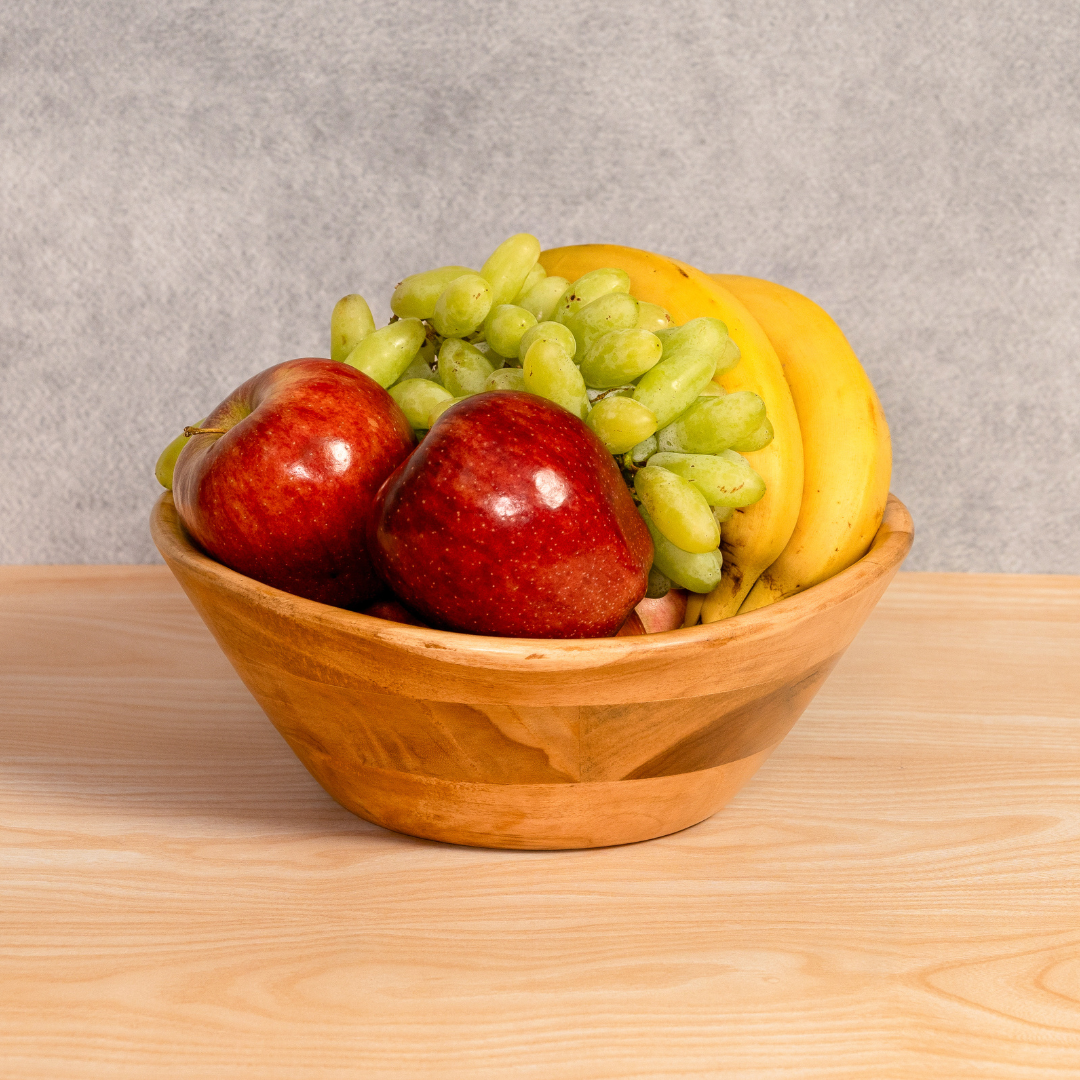
The Health Benefits of Using Wooden Kitchenware: Why Wood is Safer and More Hygienic for Your Home
Share
In the health-conscious world we live in today, what we introduce into our kitchens is more important than ever. Wooden kitchen utensils—such as spoons, cutting boards, bowls, and utensils—have endured the test of time, not just for their earthy beauty but also for their unexpected health advantages. Unlike metal or plastic, wood is a natural, non-toxic, and hygienic option that benefits both individual health and the environment. This post delves into why wooden kitchen items are a cleaner, safer choice—based on both science and tradition.
Choosing kitchenware goes beyond style or affordability—it’s a decision tied to health, hygiene, and environmental impact. Many conventional kitchen items made from plastic or synthetic materials can release harmful chemicals or harbor bacteria. Wooden kitchenware, on the other hand, is crafted from nature and carries built-in benefits that promote a healthier, more sustainable kitchen. In this post, we’ll uncover the top reasons why wood outperforms the rest—for both your home and your well-being.
Why Wooden Kitchenware Is Healthier and More Hygienic
1. Natural and Non-Toxic Material
Wooden cookware is made from natural, biodegradable materials such as mango wood, bamboo, acacia, and neem. These woods do not contain toxic chemicals, poisons, and artificial coatings that are present in plastic or some ceramic cookware. In contrast to plastic, which can have BPA, phthalates, or other hormone-disrupting chemicals, wood is not a chemical leacher into your food-even with high heat when cooked.
2. Natural Antibacterial Properties
One of the most astonishing advantages of wood is its antibacterial nature. Oak, maple, neem, and bamboo wood have natural oils that suppress the growth of bacteria. Experiments have proved that bacteria placed on wooden cutting boards are more likely to fall into the pores of the wood and perish than replicate. This auto-sanitizing property makes wooden boards and utensils healthier to use for raw meats and fresh fruits and vegetables than plastic, which can develop bacteria in surface scratches and grooves.
3. Less Porous Than Plastic, More Hygienic
Though wood is ever so slightly porous, its minute pores are less welcoming to bacteria than the micro-cracks and crevices on plastic utensils and cutting boards. Bacteria can nest in deep scratches on plastic surfaces that resist cleaning. Wood's grain structure and natural oils provide a surface resistant to bacterial accumulation and less difficult to keep hygienic with plain soap and water.
4. Maintains Food Taste and Quality
Wooden cookware does not transfer any chemical flavor to food, unlike certain plastic or metal cookware that can change flavor. The porous structure of wood can even subtly soak up and enrich the natural oils and flavors of ingredients, maintaining the integrity of your dishes.
5. Easy on Cookware and Knives
Wooden utensils are softer than metal and do not scratch or damage non-stick pans or dull knives. This helps extend the life of your cookware and knives, reducing waste and saving money.
6. Easy to Maintain and Durable
Wooden kitchen utensils need little maintenance-washing with mild soap and water, drying, and periodic oiling to maintain the wood surface. In contrast to plastic, which can deteriorate and crack with age, good-quality hardwood boards and utensils are long-lasting and resilient, making them an eco-friendly investment.
7. Environmentally Friendly and Biodegradable
Wood is a biodegradable and renewable resource that deteriorates naturally without the use of harmful chemicals. Buying wooden kitchen utensils helps decrease dependency on petroleum-based plastics, lessens your carbon footprint, and promotes sustainable forestry management.
Conclusion
Wooden kitchen utensils provide an attractive blend of health, hygiene, and environmental advantages. Being naturally antibacterial, non-toxic, and very durable, it is a healthier and more hygienic option for your household kitchen. By making the transition to wooden utensils, cutting boards, and bowls, you not only keep your family safe from toxic chemicals and bacteria but also help save our planet.
Call to Action
Make the change today—revolutionize your kitchen with earth-friendly, health-conscious wooden cooking utensils. Select sustainably harvested hardwoods such as mango, neem, or bamboo for a healthier, more natural way of cooking. Upgrade your meals, safeguard your well-being, and nurture the earth—all in a single easy step. Browse our artisanal collection and cook with intention and confidence.
